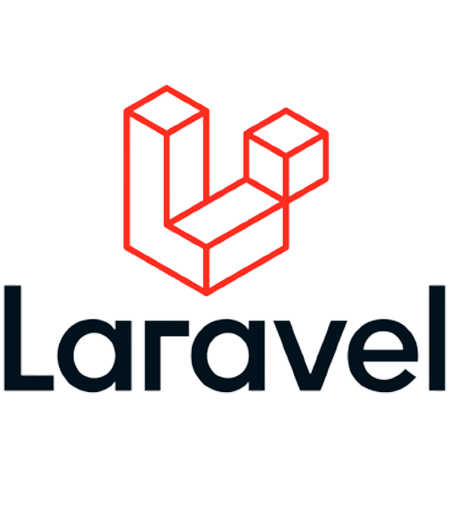by Digital
Share
by Digital
Share
With their technical expertise in taxation empowerment given by the US Department of the Treasury, they can represent taxpayers before all administrative levels of the Internal Revenue Service (IRS). Doing your taxes isn’t always easy, especially if you’re a freelancer or a small business owner with specific tax needs. An enrolled agent can help you navigate the tax code, make sure you’re filing your taxes properly, and remove a huge layer of stress from your tax season. You can also use this handy IRS directory of certified tax return preparers to search for enrolled agents in your area, or this lookup tool from the National Association of Enrolled Agents. You can figure out whether someone is a certified enrolled agent, or find enrolled agents in your zip code, using this handy IRS directory of certified tax return preparers.
Tax Planning and Compliance
- An Enrolled Agent (EA) is a federally authorized tax practitioner who has technical expertise in the field of taxation.
- NAEA members are held to a higher standard, they are obligated to complete 30 hours per year (for a total of 90 hours per three year period).
- We do not claim that they are typical results that consumers will generally achieve.
- A CPA has a much wider scope of professional financial services compared to an EA.
- An EA’s salary is primarily influenced by their level of professional experience, geographic location, and the industry they work in.
- They’ll have completed law school and may have an additional degree known as an LLM, which is a specialization in taxation.
This is an extensive three-part exam, with sections on 1) individuals, 2) businesses, and 3) representation, practices, and procedures. The three exams can be taken in any order, but a candidate must pass all three within a two-year window. Members of NAEA become part of a nationwide community that advocates for their profession in Congress and beyond. The organization offers a member-only online platform called the NAEA Webboard, where enrolled agents can exchange information, share knowledge, and discuss relevant topics with other professionals in the field. With the support of the NAEA, enrolled agents have a strong partner, teacher, and advocate on their side.
What Does an EA Do?
To take the exam, candidates must first submit Form 2587 before scheduling online with Prometric. To avoid getting scammed, the IRS suggests making sure that your tax preparer has an IRS Preparer Tax Identification Number (PTIN). Avoid preparers who charge you a percentage of your refund, and never sign a blank or incomplete return. If you think you’ve been scammed, consult this guide and use Form A to file your complaint with the IRS.
How do I prepare for the examination? Are there any study materials?
- A PTIN is a personal tax identification number that is assigned to tax professionals for use when preparing tax returns on behalf of others.
- Enrolled Agents have the expertise to navigate complex tax codes and regulations, allowing them to maximize your tax benefits while minimizing the risk of errors or audits.
- And don’t assume tax pros with one type of credential will always charge more than advisors with other types.
- You’ll learn the topics on the exam, get exam day tips, and even practice questions to test your knowledge.
- But a minimum of five years of experience is required for this kind of salary structure, which comes with huge responsibility.
Here is an overview of enrolled agents, including what it takes to become one, how they differ from CPAs and tax attorneys, and the advantages of hiring one for help with the IRS. Individuals who obtain this elite status must adhere to ethical standards and complete 72 hours of continuing education courses every three years. Only enrolled agents are required to demonstrate to the IRS their competence in all areas of taxation, representation and ethics before they are given unlimited representation rights before IRS. Unlike attorneys and CPAs, who are state licensed and who may or may not choose to specialize in taxes, all enrolled agents specialize in taxation.
Why should I choose an enrolled agent who is a member of the National Association of Enrolled Agents (NAEA)?
By proactively planning your taxes, you can potentially reduce your tax burden and maximize your savings. Enrolled aAgents, I do hereby knight thee into the Honorable Order of the IRS. Arise knights and be recognized with the highest credentials of tax preparation.
An EA also must meet ethical standards set by the US Department of Treasury. This helps ensure the highest standards of practice and ethics are maintained. To become an enrolled agent, one of the main requirements is to pass the Special Enrollment Exam (SEE). This computer-based exam is administered by Prometric and consists of three parts, with each part covering specific aspects of tax code.
Browse Income Tax School Resources
Enrolled agents enjoy flexible work options, more earning potential, and high demand for their services. We provide academic support through every step of your enrolled agent journey. what is an enrolled agent for taxes A Certified Public Accountant (CPA) is a licensed accounting professional. CPA licenses are provided by state accountancy boards, and CPAs tend to have a more flexible and expansive range of functions compared to EAs. Enrolled Agents, however, are tested, licensed, and regulated by the federal government.
A CPA has a much wider scope of professional financial services compared to an EA. The most important point is to find a tax professional experienced with your specific concern. Above all, it’s important to remember that while both professionals can provide a host of taxation services, CPAs generally offer a much wider scope of financial services. CPAs also tend to be in higher demand than EAs, but that’s probably only because CPA is a better-known license than EA. CPAs tend to do most of their work for large and small public accounting firms.
How Do Enrolled Agents Differ from CPAs and Tax Attorneys?
Workbooks and practice tests are great study resources because they provide an interactive learning experience. In addition, they offer guided instruction, which is especially helpful for candidates. In addition to the stringent testing and application process, the IRS requires Enrolled Agents to complete 72 hours of continuing education every three years to maintain their licenses. When discussing complex tax issues, Enrolled Agents strive to convey information in a way that’s easy to understand, breaking down intricate concepts into digestible pieces for clients. They actively listen to clients’ concerns, questions, and goals, fostering a collaborative environment where clients feel heard and valued. Moreover, Enrolled Agents can offer guidance on record-keeping practices, documentation requirements, and filing deadlines to help you stay organized and compliant throughout the year.
They also need to meet the continuing education requirements, which should be 72 hours every 3 years or 16 hours every year. They should review their credit chart frequently and keep updated contact information. Next is the five years of work experience working with the IRS, which is extremely important to gain practical knowledge in the field of enrolled agents for the IRS.
STAY IN THE LOOP
Subscribe to our free newsletter.
By grasping the fundamental principles and applications of flow nets, engineers can unlock new possibilities for safe, efficient, and environmentally responsible design. In this blog post, we will delve into the world of flow net in soil mechanics, exploring its principles, applications, and benefits. You will learn how flow net is used to analyze soil
Opportunitiesの意味・使い方・読み方 Weblio英和辞書 Food expenses need to be included, which are approximately $100 a week, totaling $5,200 per year. Finally, we assume the student is responsible for books and fees, which come to $1000 per year. Totaling all the expenses for the student while earning their MS degree over 2 years, barring any extenuating circumstances is
Accrued Revenue vs Deferred Revenue: Accounting Explanation We also offer managed accounting services to help optimize your financial operations. One of the biggest challenges is dealing with complex transactions and contracts. Think subscription services with different billing cycles, tiered pricing, or bundled offerings. Understanding the nuances of each contract is crucial for correctly classifying and
“Subjective” vs “Objective”: What’s The Difference? Objective stresses a tendency to view events or persons as apart from oneself and one’s own interest or feelings. Objective may stress material or independent existence apart from a subject perceiving it. Material implies formation out of tangible matter; used in contrast with spiritual or ideal it may connote




















